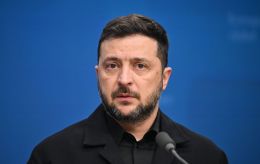Decisive vote. Will Romania elect pro-Russian radical as president?
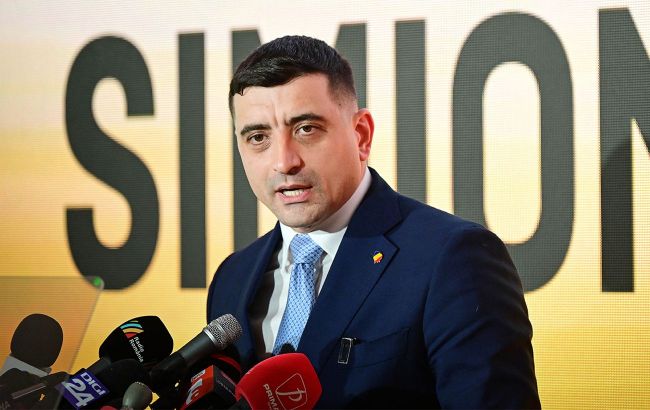 George Simion, far-right presidential candidate in Romania (Getty Images)
George Simion, far-right presidential candidate in Romania (Getty Images)
Who can win the second round of the presidential election in Romania, what role the diaspora plays, and whether the Romanian parliament will be dissolved because of the far-right Călin Georgescu — read in RBC-Uraine coverage.
Takeaways
- Why were the pre-first-round forecasts wrong?
- What are the chances of the far-right radical George Simion winning?
- Why does the Romanian diaspora vote for the pro-Russian candidate?
- Why is Simion’s victory dangerous for Ukraine and the EU?
The far-right parties strengthen their positions in Europe. After success in last year’s European Parliament elections, far-right forces continue to achieve noticeable results at the national level. First, the National Rally in France, followed by the Alternative for Germany in the Bundestag elections.
Europeans increasingly prefer radical and openly populist parties, which are often the only alternative to traditional parties that have ruled countries for years. Now the far-right wave has reached Romania, where the second round of the presidential election will take place tomorrow.
The result of this vote will show whether Romania’s foreign policy course will turn 180 degrees, transforming it from a European friend of Ukraine into a pro-Russian ally of Hungary and Slovakia.
A 10% sociological error
Before the first round, sociological polls predicted the victory of the far-right party AUR leader George Simion. It was expected that about 30% of voters would support him. Simion surprised everyone by gaining 40.96% of the votes - almost twice as much as his banned-from-election ally Călin Georgescu last November.
As Romanian political scientist Marius Ghincea told RBC-Ukraine, this noteworthy error in polls can be explained by three factors. The first is the scandalous revoke of the election, which strongly polarized society. Many Romanians who did not intend to vote for Simion perceived the Constitutional Court’s decision as ignoring the will of the people. This perception, in turn, fueled support for the far-right.
The second factor is the spiral of silence. Almost half of the respondents interviewed for exit polls refused to answer who they voted for. According to Ghincea, it indicates that these people will vote for a candidate who is not socially acceptable (in this case - Simion). But it is not reflected in the poll results.
The third is that the far-right movement in Romania very effectively mobilized grassroots dissatisfaction with the establishment and mobilized the diaspora in its favor. Simion received enormous support among overseas voters — over 60% of the votes.
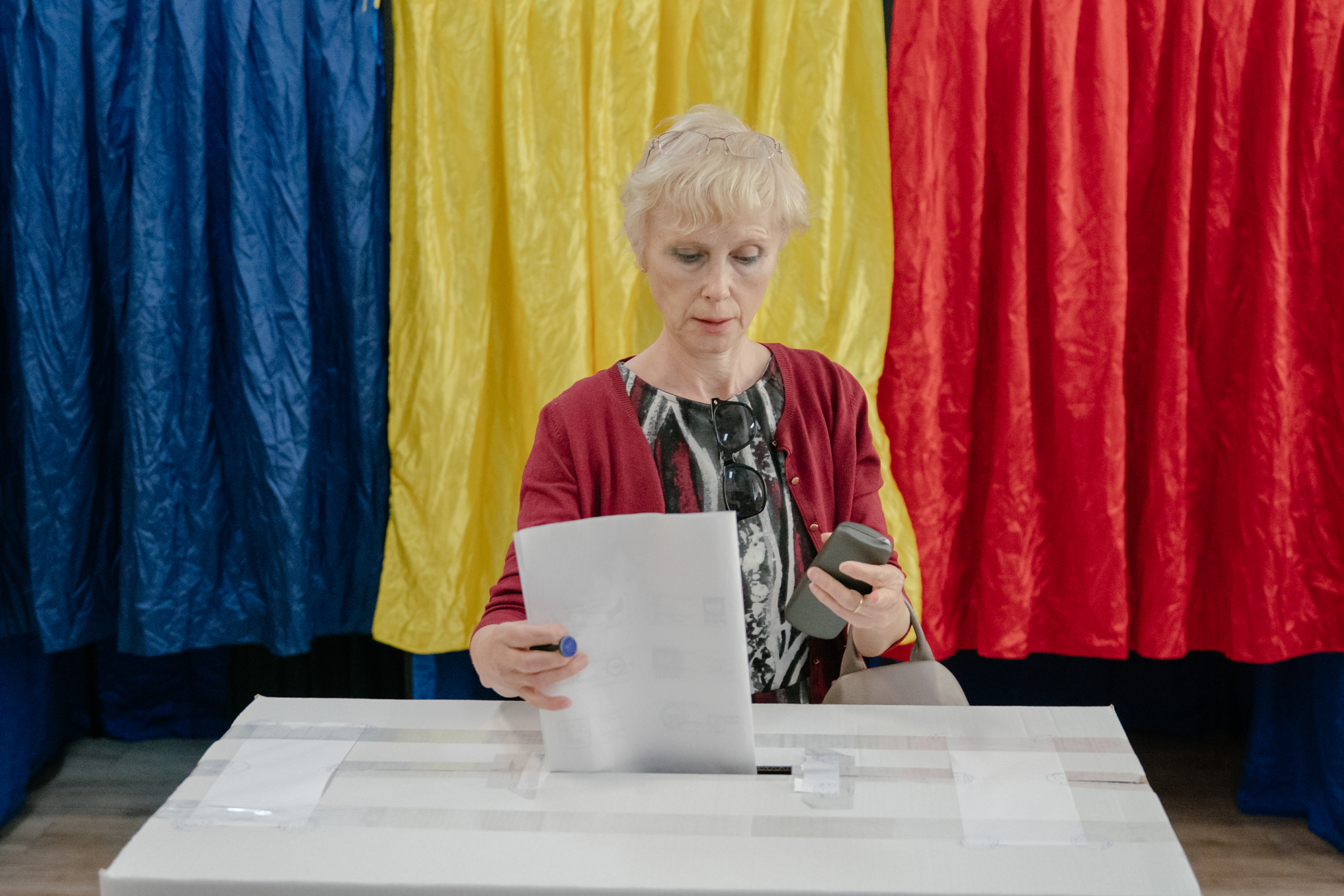
Sociological polls were wrong before the first round (photo: Getty Images)
Unlike the overseas voters of neighboring Moldova, who saved the pro-European Maia Sandu from defeat last fall, the Romanian diaspora preferred the right-wing populist. And although these diasporas often speak the same language and have common citizenship — they are very different, says Romanian political scientist Andrei Țăranu.
"Romania has been part of the EU since 2007. It benefits a lot from the EU. And the wage gap between Romania and the diaspora is not as significant as in Moldova. Because Moldova is not in the EU. From this point of view, the Moldovan diaspora is very interested in becoming part of the EU. And the Romanian diaspora, some of whom have been somewhat discriminated against in the countries where they live, are starting to develop a kind of Eurosceptic attitude," explained Țăranu.
According to Marius Ghincea, the Romanian diaspora traditionally votes against the establishment — especially against the Social Democrats. "This diaspora also has demographic characteristics that are especially conservative, traditionalist, and vulnerable. It means these people tend to vote mainly for candidates who oppose the establishment," he told RBC-Ukraine.
Although Romania has a multiparty political system, since 2000 the government has traditionally been controlled by Social Democrats and National Liberals, who alternate in power. Other parties have come to power only twice. Such a long stay in power has its downsides. For example, voters accumulate disappointment due to a lack of positive change, image problems, or corruption scandals. As a result, voters begin to look for an alternative to traditional forces promising change.
Most of these people, according to him, do not believe statements that Georgescu or Simion are pro-Russian or that they will lead the country out of the EU. On the contrary, they generally support participation in the EU and NATO but want Romania to be more assertive and strongly defend its own interests, Ghincea noted.
"They are also generally concerned about the war in Ukraine and find Simion’s messages about reducing military or economic aid attractive, as they may think that such aid increases the risk of Romania being drawn into the conflict. This is obviously not true, but these people see it differently," he added.
Support of over 40% of votes especially increased Simion’s chances of winning in the second round, where he will face Bucharest Mayor Nicușor Dan — a moderate centrist, who received 20.99% of the votes in the first round.
Simion vs Dan: Who will win the president's seat
In early sociological polls ordered by Dan before the second round, Simion maintained a confident lead over his competitor: 55% versus 45%. However, as fresh polls showed, with the approach of election day, the gap between the presidential candidates was narrowing.
The poll published on May 14 by AtlasIntel forecasted Simion and Dan at 48% each. Already the next day, the IRSOP poll for the first time put the Bucharest mayor ahead – 52% versus 48% for Simion. However, unlike the AtlasIntel poll, which surveyed 4,000 people including a sample of the large Romanian diaspora, IRSOP polled about 940 potential voters.
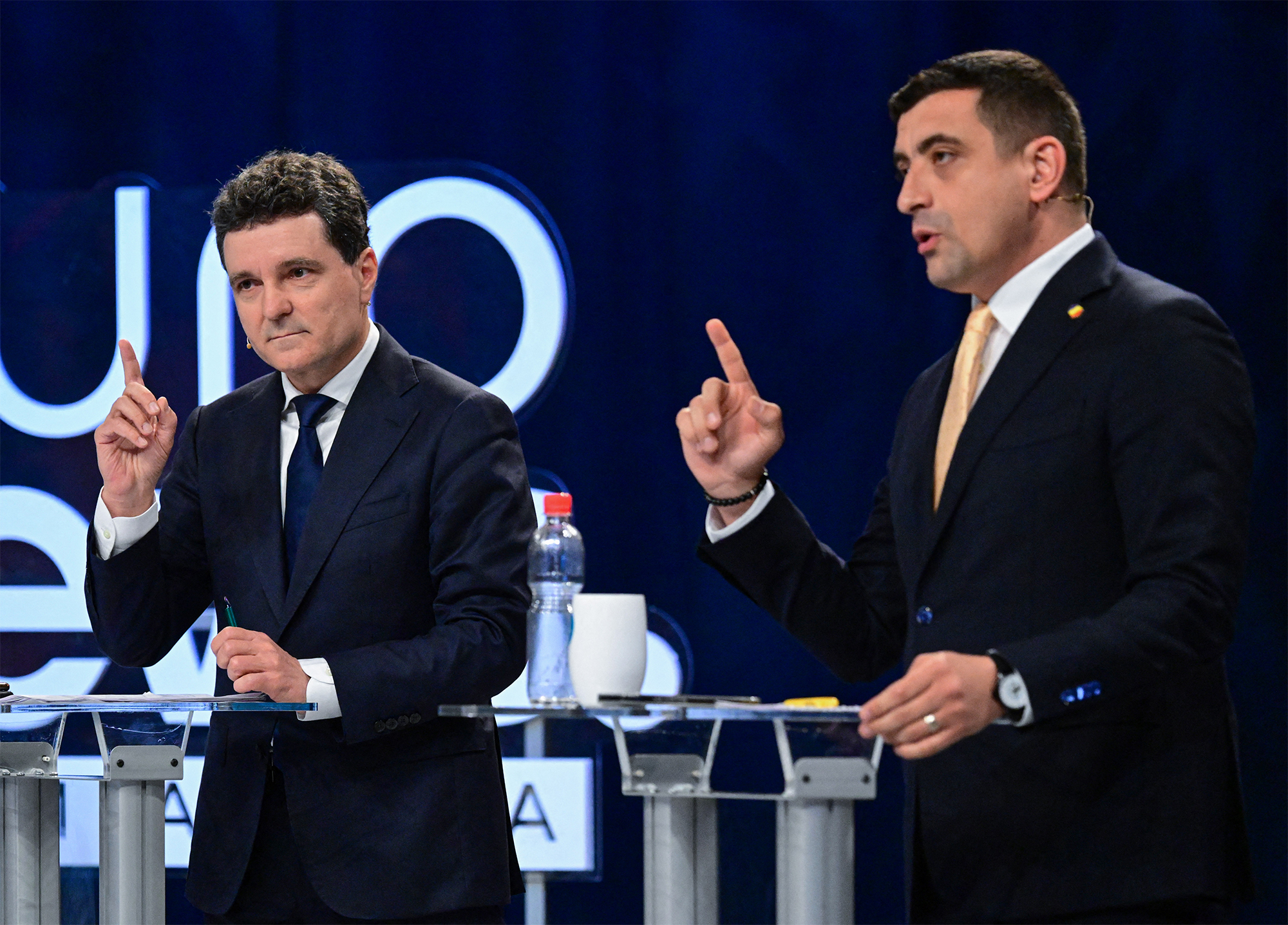
Simion and Dan will compete in the second round (photo: Getty Images)
Likely, as in the first round, the deciding factor will be the diaspora vote. In the first voting, Dan received 25% abroad – almost three times less than Simion. An important part of tomorrow’s vote may be Moldovans with Romanian citizenship, and there are about a million of them according to various estimates.
These voters are expected to support Dan in the second round. Official Chișinău is even trying to facilitate the process. Maia Sandu and Moldovan Foreign Minister Mihai Popșoi appealed recently to Moldovans with the right to vote urging them to support Dan.
In turn, Simion probably decided to compete for the support of the Hungarian community, which he previously repeatedly offended with his xenophobic remarks. In the first round, Hungarians were mostly against Simion, but before the decisive vote, he was personally supported by Viktor Orbán, who would certainly benefit from another ally in the EU and NATO.
However, Orbán's position caused a negative reaction from leaders of the Hungarian community in Romania, who recalled Simion’s anti-Hungarian activities. This wave of discontent was quickly picked up by the opposition Péter Magyar, the main competitor of the Hungarian prime minister. So Orbán, worried about the votes of his own electorate, had to retreat and state that the Hungarian community would decide whom to support on their own.
According to Marius Ghincea, the diaspora accounts for about 1–1.3 million votes, which will likely be distributed 70 to 30 in favor of Simion. Strong support for Simion is again evidenced by voters refusing to participate in polls.
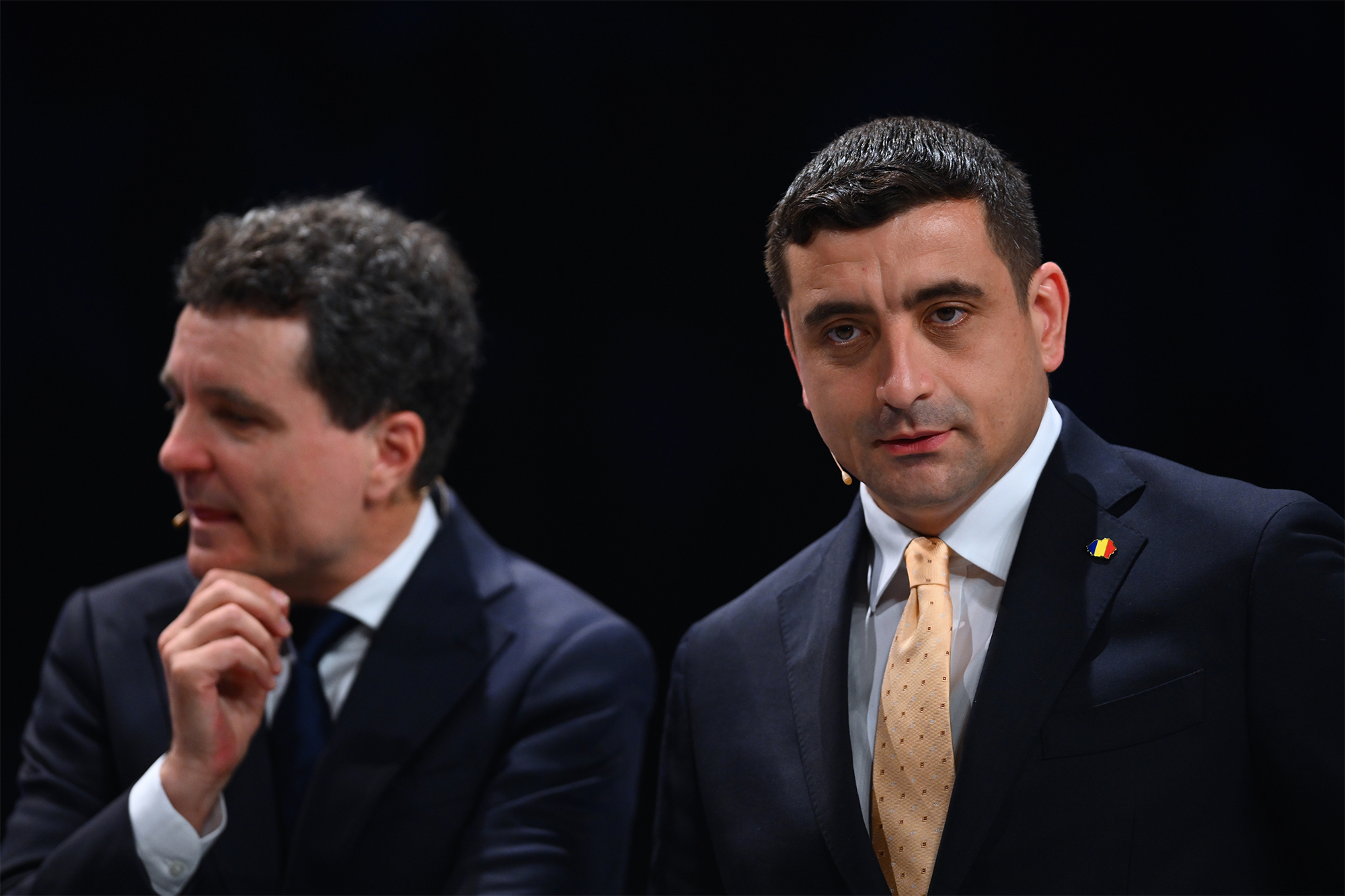
Simion and Dan are fighting for the votes of the Romanian diaspora (photo: Getty Images)
The decisive factor will likely be voter turnout. As Politico wrote, Dan’s team believes that a 60% turnout could lead to his victory. If turnout remains at the same level as in the first round – 55% – then Simion will most likely win.
"Dan still has a decent chance to win this election. Historically, a candidate who wins the first round almost always loses in the second round," believes Ghincea.
As the sociological institute INSCOP director Remus Stefureac believes, recent data indicates that turnout will be 8-10% higher than in the first round of voting. But the estimates, Stefureac adds, are still unstable.
Georgescu's comeback
Inspired by his victorious result in the first round, Simion has already spoken about early parliamentary elections and plans to bring the scandalous Călin Georgescu to power.
"We are stylishly winning in Romania in the second round. It will be a convincing victory. If all goes well, in a month we will put Călin Georgescu, who won the first election, in charge of Romania and return to the voice of the people," Simion said in an interview with Trumpist Steve Bannon.
These thoughts of the far-right candidate were obviously encouraged by the unexpected decision of Marcel Ciolacu to resign as prime minister after the defeat of the representative of his Social Democratic Party in the election. Ciolacu’s position was temporarily taken by Interior Minister Cătălin Predoiu. So now Romania has not only a temporary president appointed after the revocation of the election but also a temporary head of government, which hardly contributes to stability in the country.
After the appointment of the temporary prime minister, a 45-day term began to form a new government. Due to the withdrawal of the Social Democratic Party from the coalition, which ended the majority, parties will have to make efforts to agree on a candidate for prime minister who can receive a vote of confidence in parliament.
Romania’s constitution does not provide for immediate re-elections in case of the prime minister’s resignation, but the president has the right to dissolve parliament if it cannot express a vote of confidence to the government within 60 days after the first request for approval. Or after the failure of at least two such requests.
If Simion still wins in the second round, and parliament cannot elect a new candidate for prime minister or, for example, does not want to approve Georgescu, he will have the right to initiate early elections. The scenario of early elections was also suggested by Simion himself in an interview with the Romanian portal Digi24.
"However, this is a complicated scenario because it is unlikely that parliament will risk dissolution less than a year after the start of its term. But it cannot be completely ruled out, especially if Simion becomes president. He can manipulate to achieve such a result," Marius Ghincea suggested.
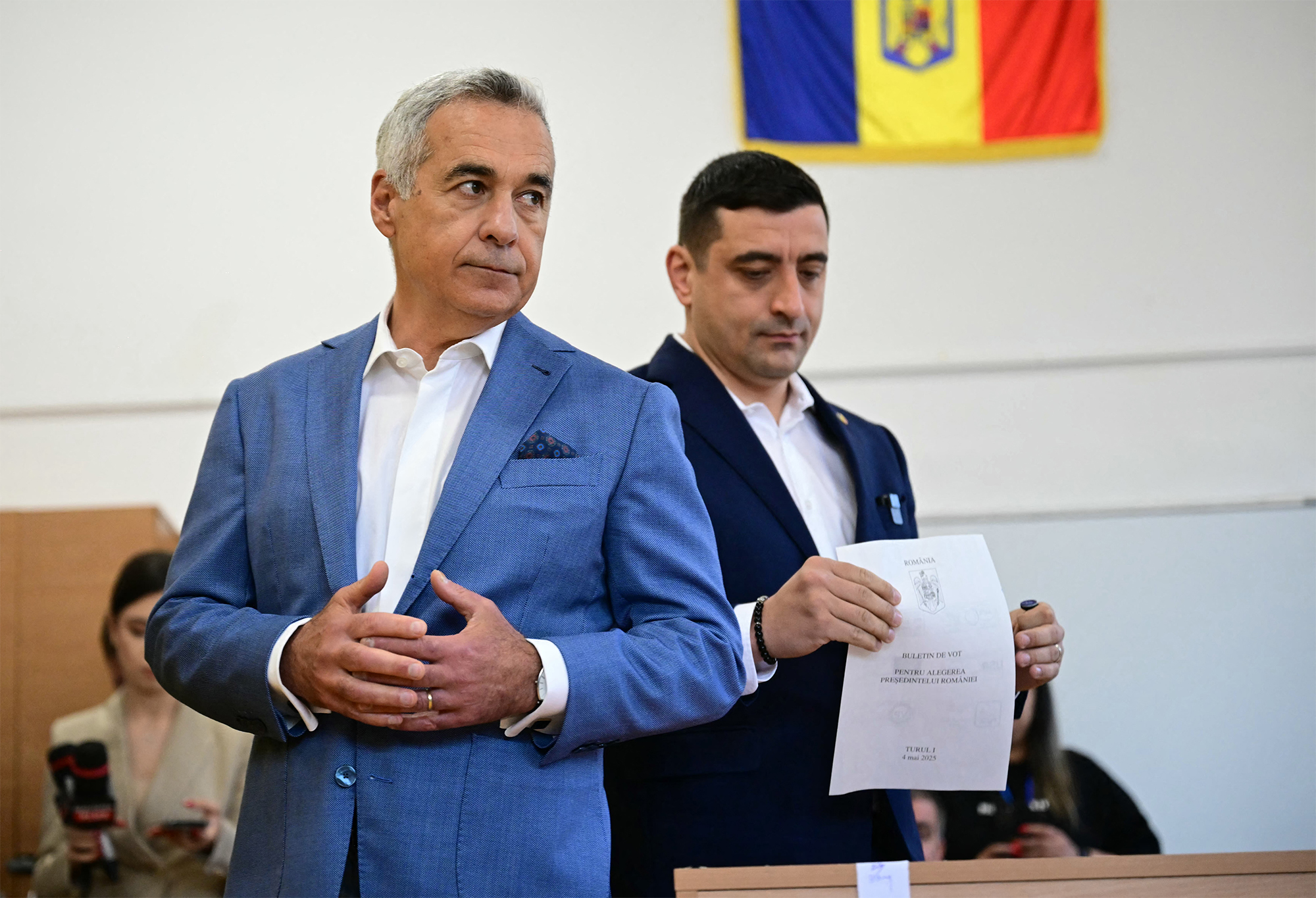
Simion wants to bring his ally Georgescu to power (photo: Getty Images)
Early parliamentary elections are unlikely to be beneficial for Simion, believes political scientist Andrei Țăranu. Romania is already in a very poor economic state, and the costs of yet another election will only cause a wave of dissatisfaction. Moreover, the diaspora does not vote in parliamentary elections, so it is unlikely that the far-right will manage to gain a majority in parliament.
"Most likely, they will have, as now, 33% of the votes in parliament. And the structure of parliament will be roughly the same. So even if they talk about early elections, I don't think they really want them. Because it will block Romania forever. And it will be like in Bulgaria, an endless election story," explained Țăranu.
Far-right turn of Romania
After Donald Trump's return to the White House, Russia-friendly European politicians, such as the prime ministers of Hungary or Slovakia, began to position themselves as pro-American, not pro-Russian, as they used to be called. Of course, it is more accurate to say pro-Trump, since they follow the position of the US president, who flirts with Moscow and takes a tough stance on Ukraine.
Simion, who is suspected of ties with Russian special services and who called for the seizure of territories of neighboring countries, for which he received a ban on entering Ukraine and Moldova, also did not bypass this trend. Moreover, the American administration criticized the cancellation of the election in Romania after Georgescu's victory and openly supported the far-right in Europe.
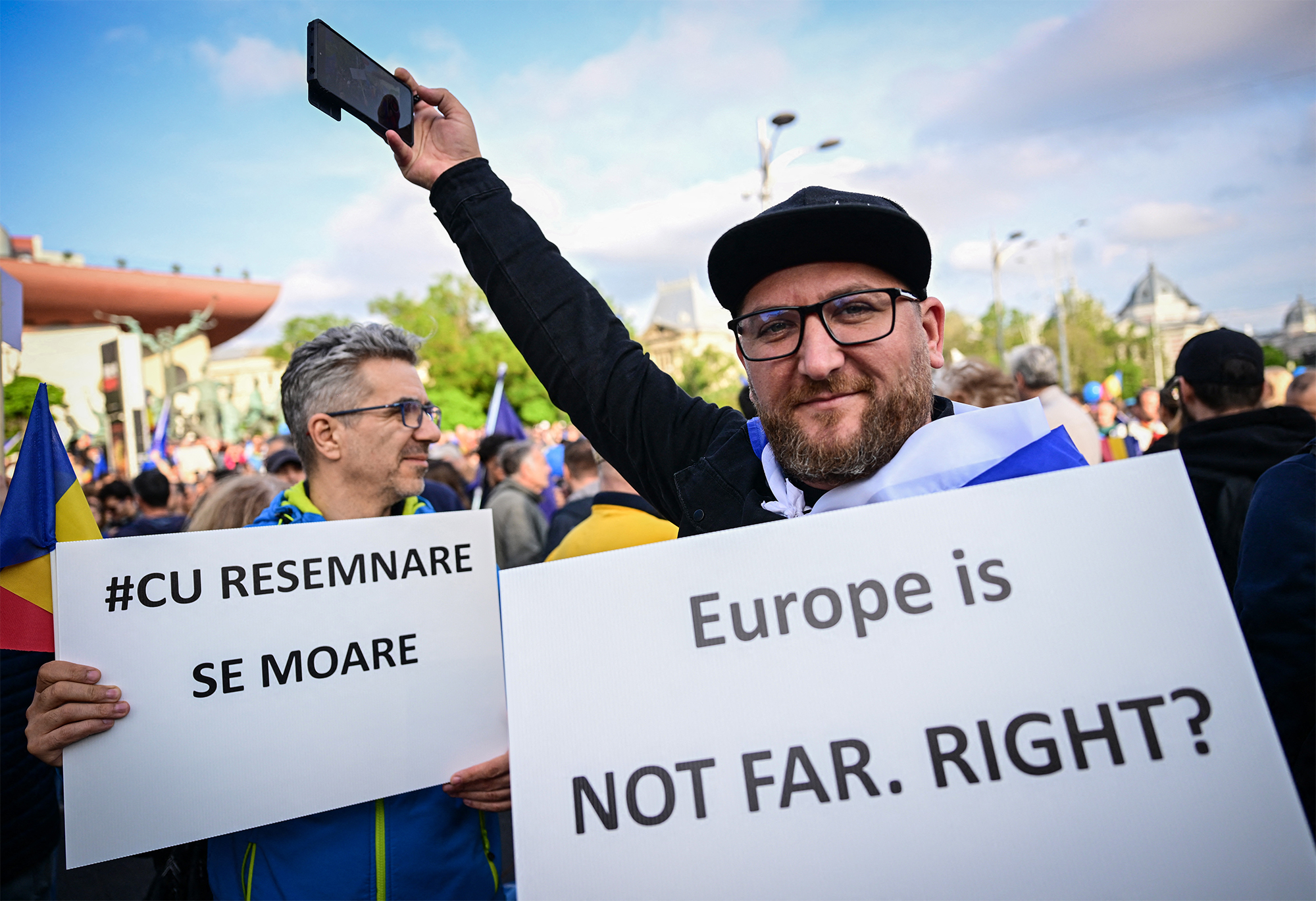
Simion can change Romania's policy if he wins the election (photo: Getty Images)
The radical repeatedly threatened to stop military aid to Ukraine and block the export of Ukrainian grain in case of his victory and even demanded compensation from Kyiv for the provided Patriot systems. But recently, Simion said that Russia's war against Ukraine must be stopped immediately to prevent casualties and called to "pray and hope" that Trump's peace efforts will work out.
"Simion is a fan of Trump, but Trump is a fan of Putin. So from this point of view, according to Aristotle's logic, Simion is also a fan of Putin," said Andrei Țăranu in an interview with RBC-Ukraine.
As political scientist Marius Ghincea explained to RBC-Ukraine, Simion also seeks to emulate any successful populist leader in Europe. According to Țăranu, Simion's political course will be closer to Orbán than to his Slovak colleague Robert Fico.
"Because since the beginning of his political career, Simion, like some other Romanian politicians, has been very interested in Orbán's soft authoritarianism and populism. I assume Hungary will be his reference," Țăranu said.
Simion indeed shares views with Orbán on European security, aid to Ukraine, and foreign policy strategy towards Russia. According to Ghincea, their rapprochement will have negative consequences since a mini-block of Romania, Hungary, and Slovakia may form within the EU.
Yet, Romanian voters are less concerned about a possible change in foreign policy than about the situation inside the country, both political scientists told RBC-Ukraine. The same applies to Simion's pro-Russian views.
Romanians vote against traditional parties that have lost trust, and the far-right only gathers protest votes from those who possibly do not fully share their policy.
"People are indifferent to foreign policy and they really do not believe accusations that Simion is pro-Russian. Because the establishment branded any political opponent they opposed as pro-Russian," Ghincea said.
Even if Romania’s policy changes, most of Simion’s voters will not worry about it. Ghincea says they have a low level of education, so they do not understand geopolitics well and are more concerned about internal problems.
Sources: comments from Romanian political scientists Andrei Țăranu and Marius Ghincea, articles from Politico, RFI, IntelliNews, Digi24.ro, BBC, statements by Moldovan President Maia Sandu and Moldovan Foreign Minister Mihai Popșoi, and a Facebook post by sociologist and INSCOP director Remus Stefureac.

